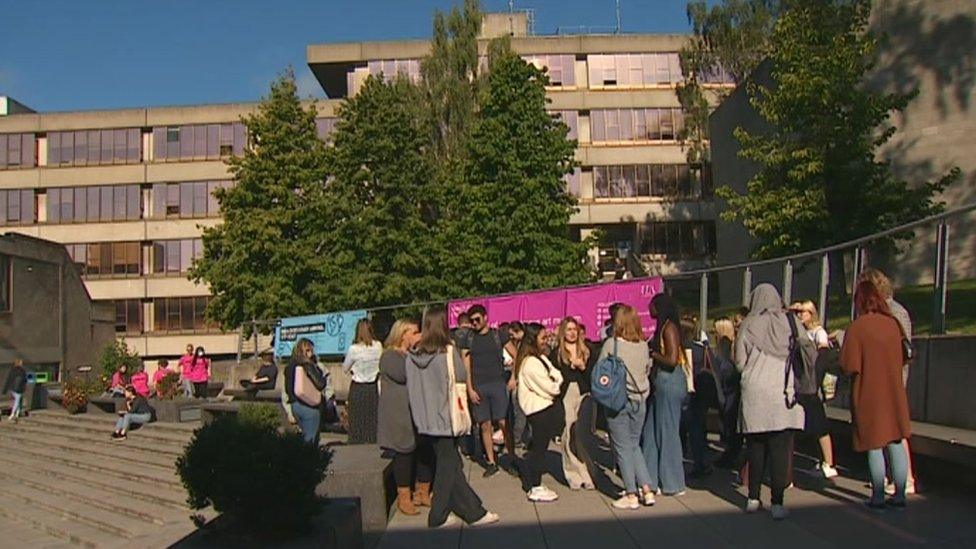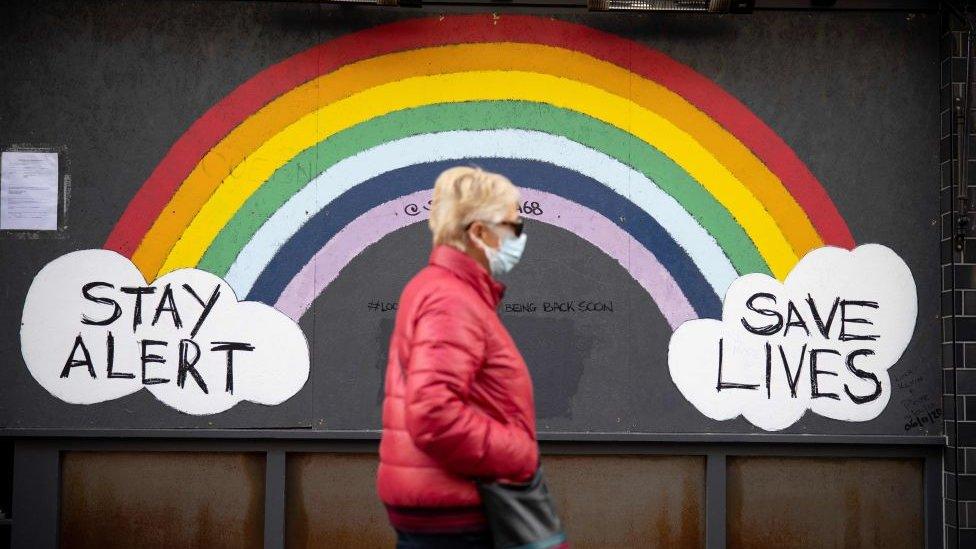Covid: Snapshots of lockdown reveal 'unequal' pandemic
- Published
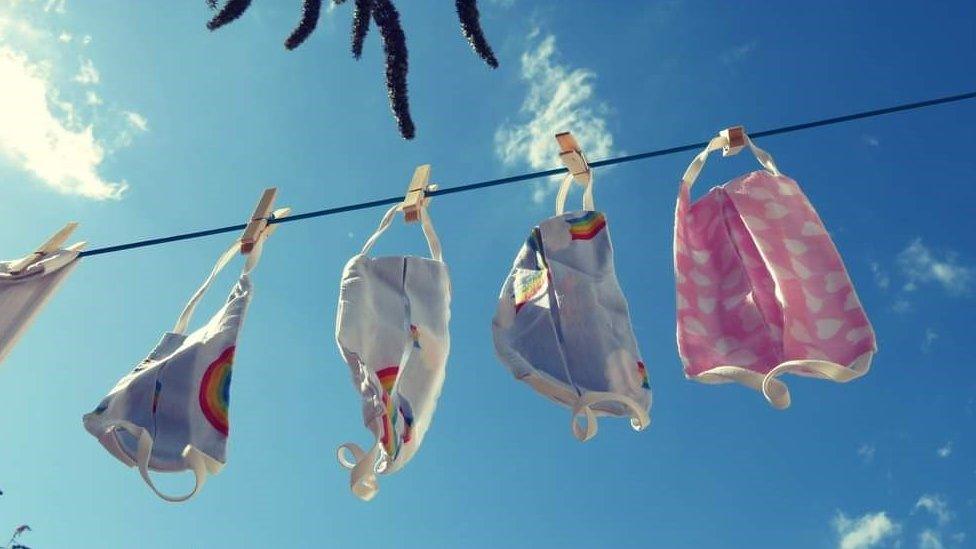
Contributors were asked to submit photos which captured their life in lockdown
Photos taken during the Covid lockdown as part of a study into the health of the nation tell the story of an "unequal pandemic", researchers said.
A team at the University of East Anglia embarked on a project in the first lockdown to track people's wellbeing.
Contributors submitted daily details, with some also sending in photos.
"A recurrent theme through the images is one of loss - of both freedoms and lives," said Dr Sarah Hanson, of the School of Health Sciences.
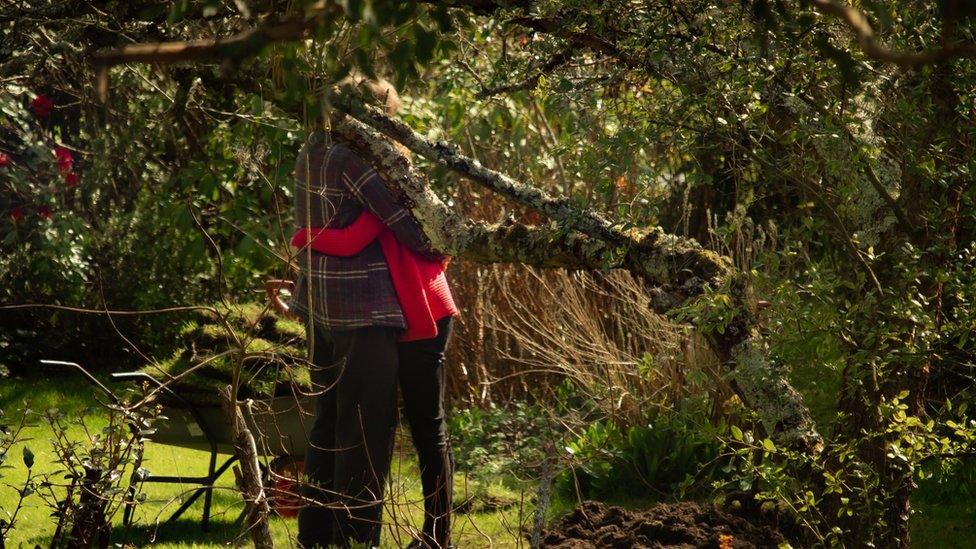
The photos cover many themes - from sharing a moment of warmth and connection...
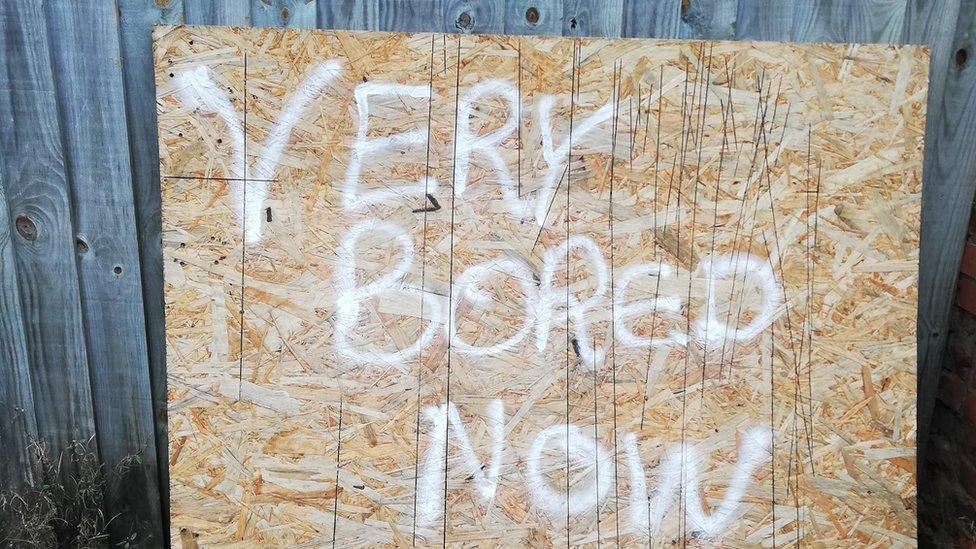
to stark expressions of mood
"The photographs also illustrate people's starkly different experiences of life in lockdown - it was a very unequal pandemic," she added."For those with limited control over their lives and in poorer circumstances the pandemic exacerbated already difficult lives and communities that are struggling to recover."The pandemic has been devastating to many people and social groups and our findings show the many unintended social consequences of lockdown."
'Socially connected'
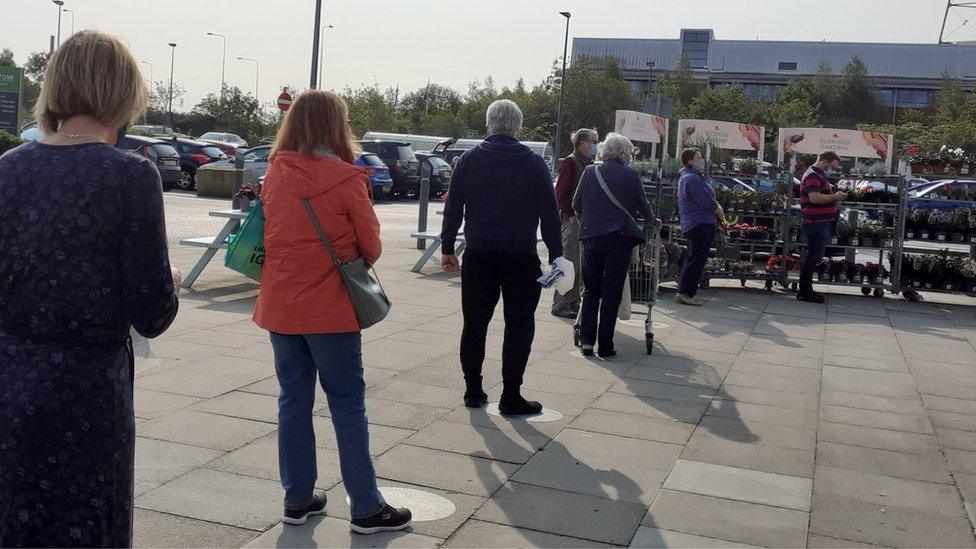
The photos are a reminder of the Covid routines around shopping...
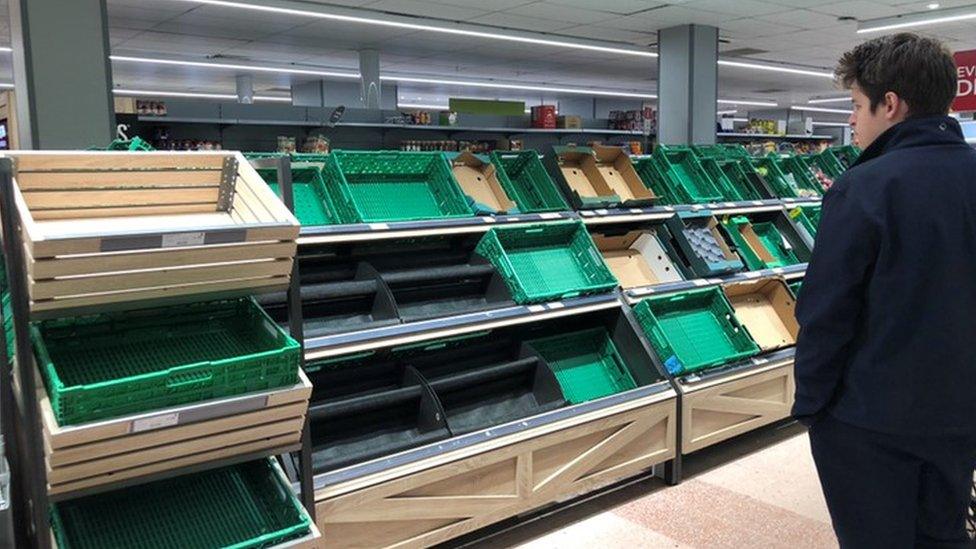
and empty shelves in supermarkets when supplies ran low
Lead researcher Prof Caitlin Notley, from UEA's Norwich Medical School, said the study set out to track people's health and lifestyle changes in order to find out about the pandemic's impact.
More than 1,000 people kept daily lifestyle diaries over three months, charting their physical activity, diet and mood, and submitted the details to an online survey.
Almost 400 photos were submitted, along with short descriptions to accompany them, giving testimony to people's lived experiences, the UEA said.
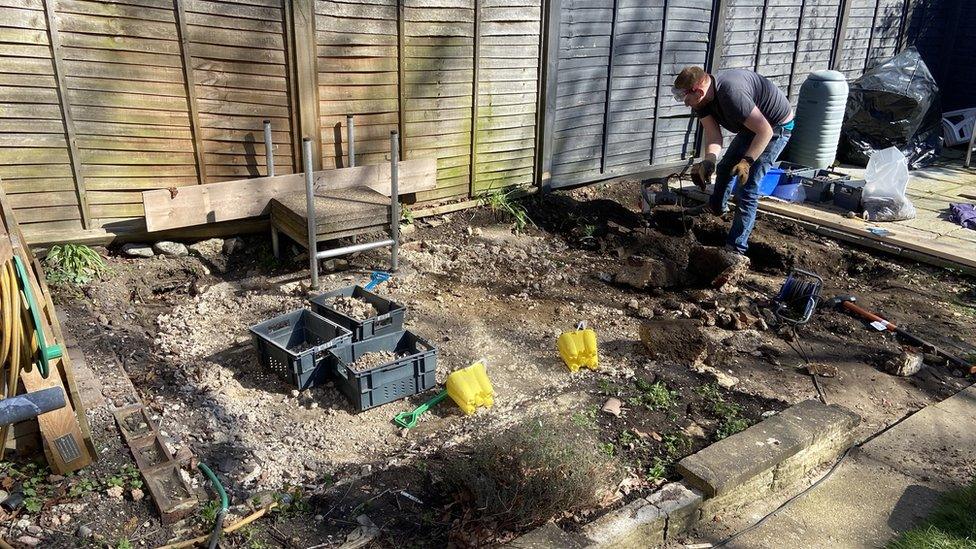
People with access to outdoor space were able to cope better, Dr Hanson said
Dr Hanson added: "Those who had more resources and more control over their lives were more easily able to find comfort, find a way to be socially connected and to develop a sense of resilience.
"It tended to be those who were better off financially, had gardens, had a computer and internet at home, and who were able to work from home, that were able to cope with it better."We should also be mindful that even for those who appeared to cope well, the trauma can be covert and issues can emerge as significant psychological issues later on."
The paper - "Lest we Forget: Illuminating lived experience of the Covid-19 pandemic and lockdown" - is published in the journal Social Science & Medicine.

Follow East of England news on Facebook, external, Instagram, external and Twitter, external. Got a story? Email eastofenglandnews@bbc.co.uk, external or WhatsApp us on 0800 169 1830
- Published24 March 2023
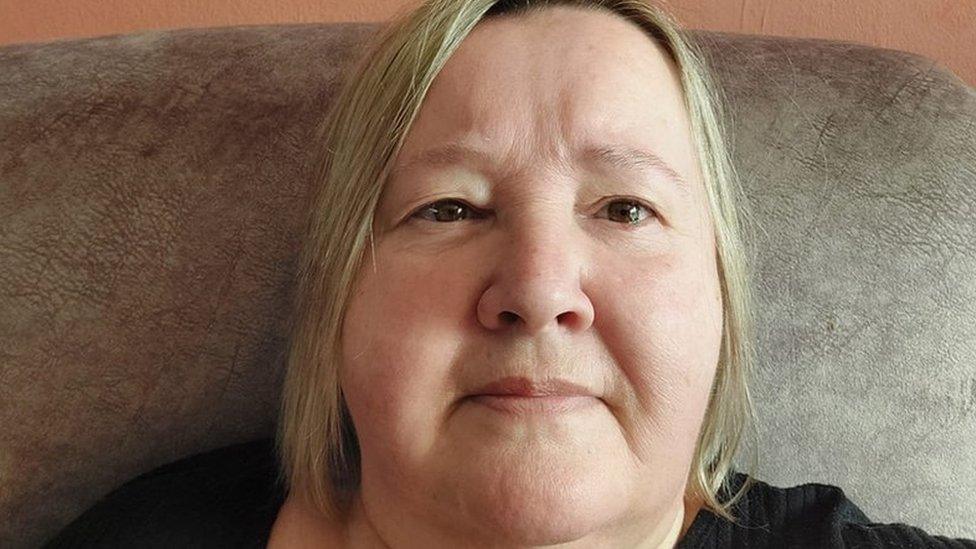
- Published6 December 2021
